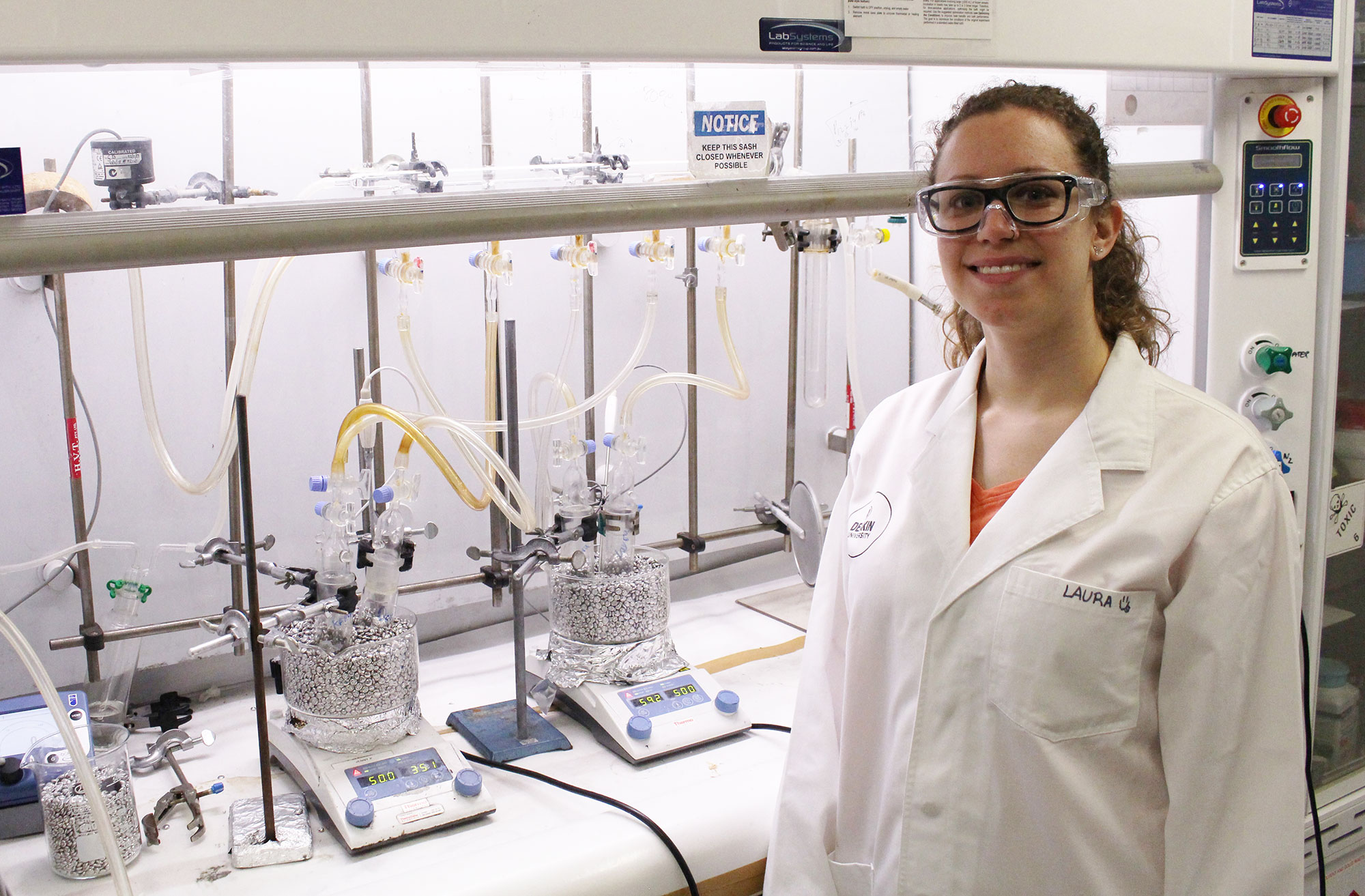News
3D printing bone tissue
Jun 28 2022
ACES PhD student Laura Garcia-Quintana is currently studying oxygen reduction reaction mechanisms in ionic liquids. Ionic liquids (salt compounds that are liquid at or around room temperature and have the ability to conduct electricity) show great potential as electrolytes to be used in sodium (Na)-air batteries because they are not highly flammable and do not evaporate in air.

Originally from Spain and now based at our Deakin University node, we caught up with her for a chat about her work, joining ACES and more.
What has been your area of research and who are you working with for your PhD?
I’m working on ionic liquids as electrolytes for Na-air batteries with supervision from Dr Cristina Pozo-Gonzalo, A/Prof Patrick Howlett and Prof Alan Bond. My research is on Na-air batteries, but my main priority is more fundamentally focused. It’s related to what’s happening inside the battery, such as the different kind of interactions between all the species present inside the battery, when it is cycling. I study the electrochemistry of these batteries.
What do you hope ultimately comes out of your research?
Ultimately, the idea is to combine all of our knowledge to make a complete battery. There are presently hundreds of ionic liquids and new ones being synthesised on a regular basis. Once we finish this project, we hope to find a group of ideal ionic liquid electrolytes that will lead to higher capacity and efficiency and longer working life batteries. Thus, we are studying different ionic liquids that will help improve the energy storage capacity of the battery and so enhance its performance.
What’s next after your PhD?
That’s a hard question. I really don’t know yet, to be honest. I might continue in academia but I’m also curious about industry jobs, so that’s something I will have to figure out when I finish my PhD. Right now, I’m too focused on what I’m currently researching.
What was your background before joining ACES?
I studied chemistry and then did a masters in nanotechnology, both at the Complutense University of Madrid before moving here about a year and a half ago.
What does a usual day look like for you here?
On a normal day, I arrive at the office, review emails and go over my to-do list. Then there is actually going to the labs, so you have data to analyse afterwards. I also try to spend time reading papers and writing my thesis, or preparing any presentation material for meetings. I find I’m usually in the lab most days, except I do try to dedicate at least one day solely on reading and going over data that I’ve obtained. That being said, I most enjoy being in the lab.
What’s your favourite aspect of your work?
First of all, I really like Australia. The people are so friendly, especially in this group at Deakin. They have made it so easy to settle in. We have people coming from all over the world here, which helps because my peers understand what it’s like – especially when feeling home sick. It’s been really welcoming, too.
As for more specifically related to my work, there’s nothing I like more than the feeling when I am with my experiment, trying to make it succeed and obtain good results.
Do you plan on staying in Australia long-term or would you go back home to Spain?
I don’t feel like going back home right away, other than a visit, of course. I don’t know where I will end up, but I would like to be closer to home and my family. Australia is just a bit too far away.
Thanks for your time, Laura.













